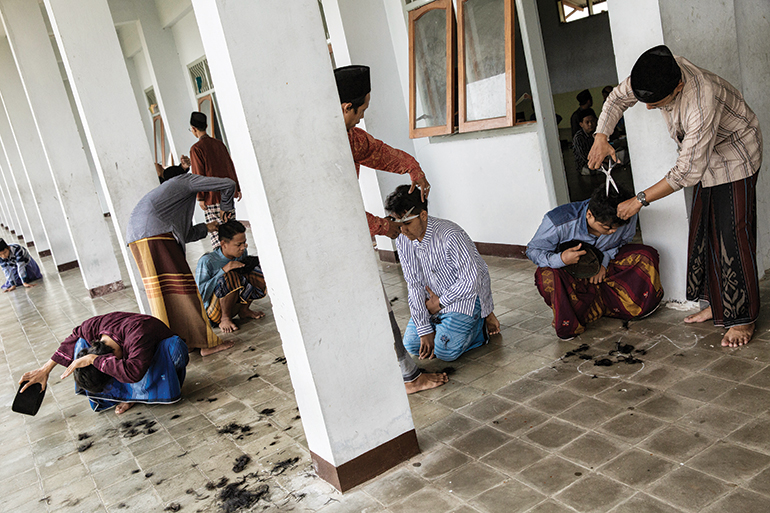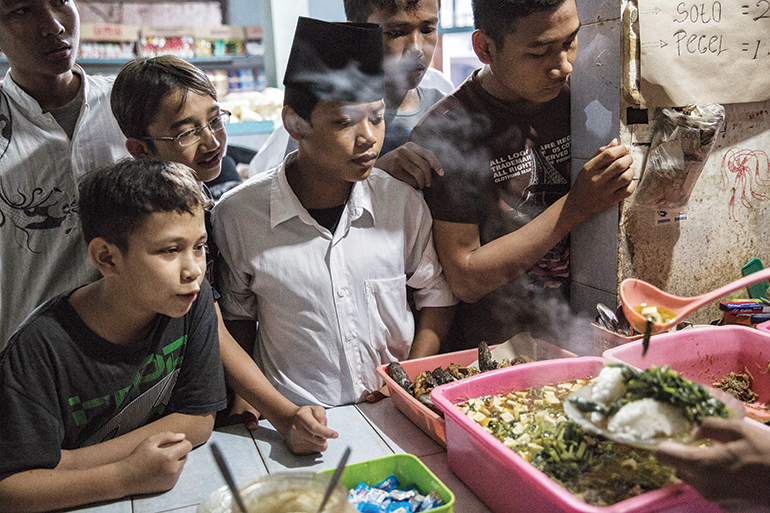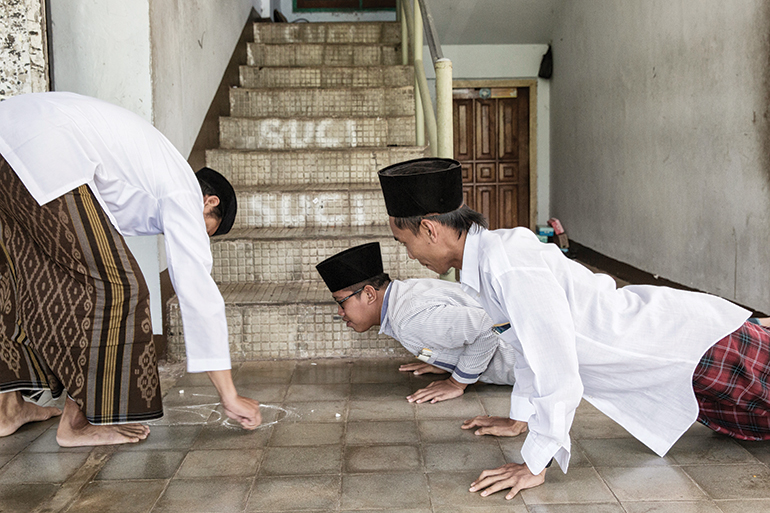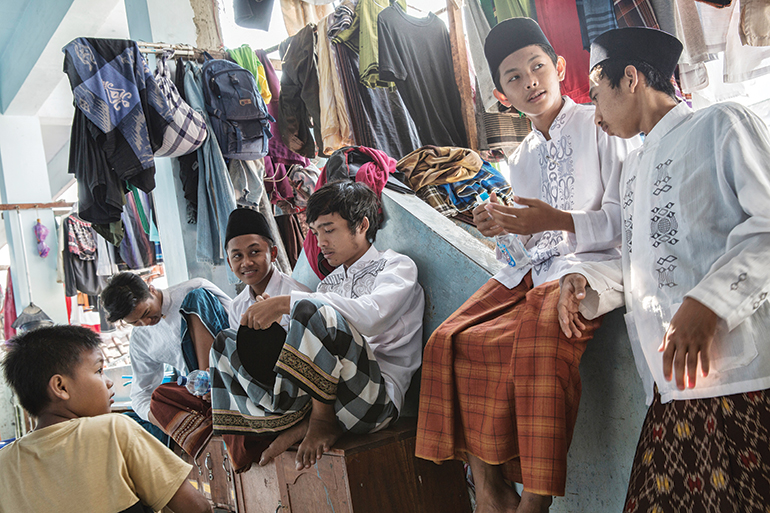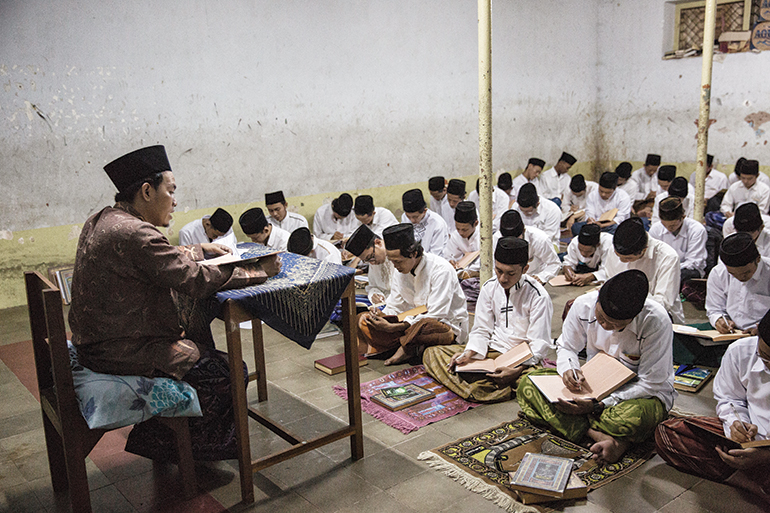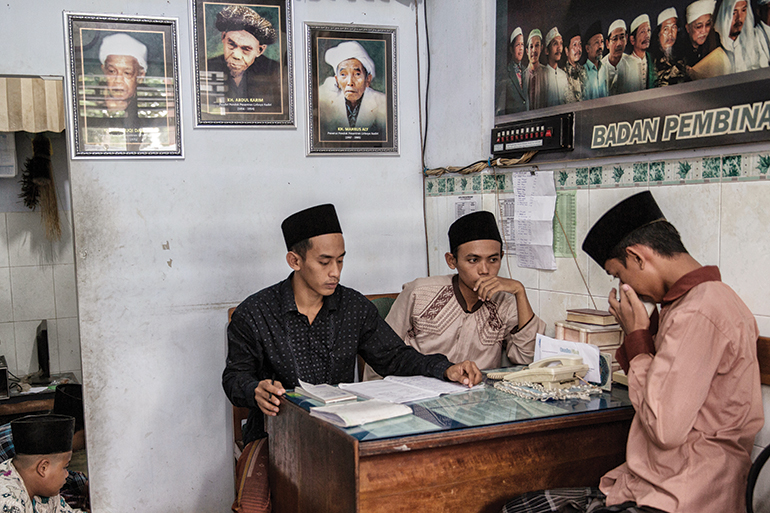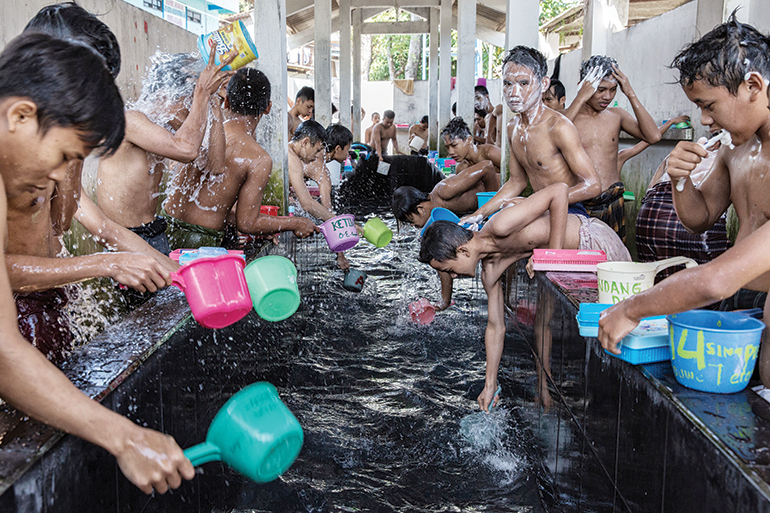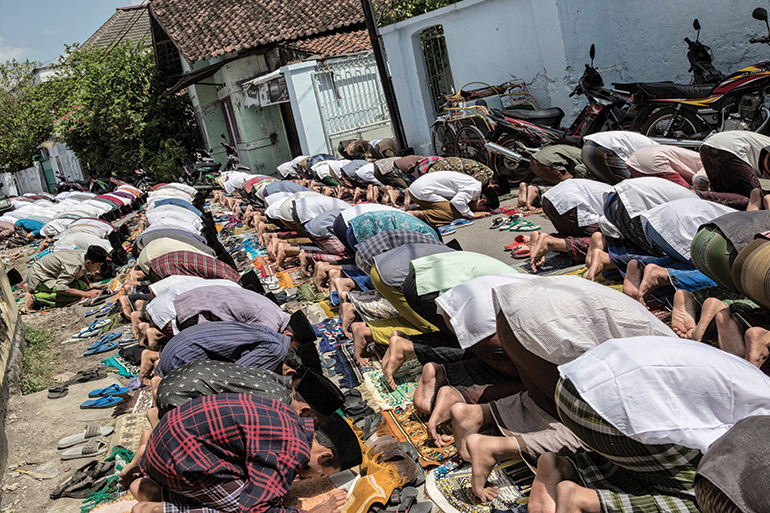
A group of boys dressed in sarongs and peci hats sit cross-legged on the floor while an older boy occupies a chair in front. Behind him, in this classroom in Indonesia’s East Java province, a blackboard hangs on the wall with explanations of Islamic precepts scrawled in Arabic. The elder boy reads from a copy of the Qur’an on the table in front of him as his young charges listen attentively.
Indonesia is home to the largest Muslim population in the world – about 202.9 million of its people, or 87.2% of the population, follow Islam. As such, there are numerous Islamic educational institutions scattered across the archipelago. Among them are pondok pesantrens, or pesantren for short – traditional Islamic boarding schools. While studying there, male students, known as santris, take religious instruction while living communally.
It is believed that the pesantren style of Islamic education emerged in Indonesia, mainly concentrated on the island of Java, in the 17th century. Over time, most of the country’s roughly 25,000 pesantrens have expanded to teach not only faith-based principles but also a standard modern curriculum. Among the few that focus solely on religious studies is Pondok Pesantren Lirboyo, which was established in 1910 in the village of Lirboyo in Kediri, East Java province.
Founded by Kiai Haji Abdul Karim, an Islamic scholar, the boarding school has at least 6,000 male pupils, coming from Indonesia and beyond – Malaysia, Singapore and Thailand – to attend what is the largest institution of its kind in the country. The education system comprises three grades based on the students’ competence, not their age. Students range in age from five to 40 years old, with the school preparing them for the life of a preacher or religious teacher.
The sounds of Azan emanating from a loudspeaker at the nearby mosque signals that it’s time for afternoon prayer and brings class to an end. The elder boy orders his pupils to put away their study aids and walk toward the mosque. One by one, they arrive and perform a wudu (ritual ablutions) before entering and kneeling to pray.
